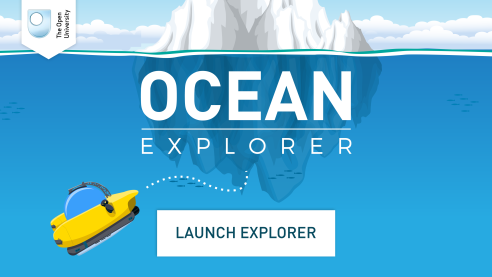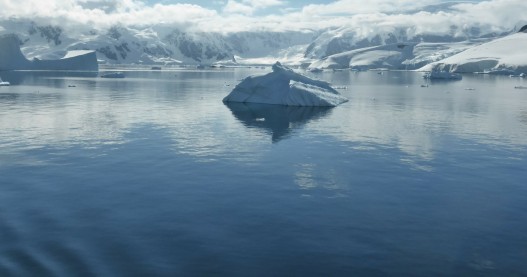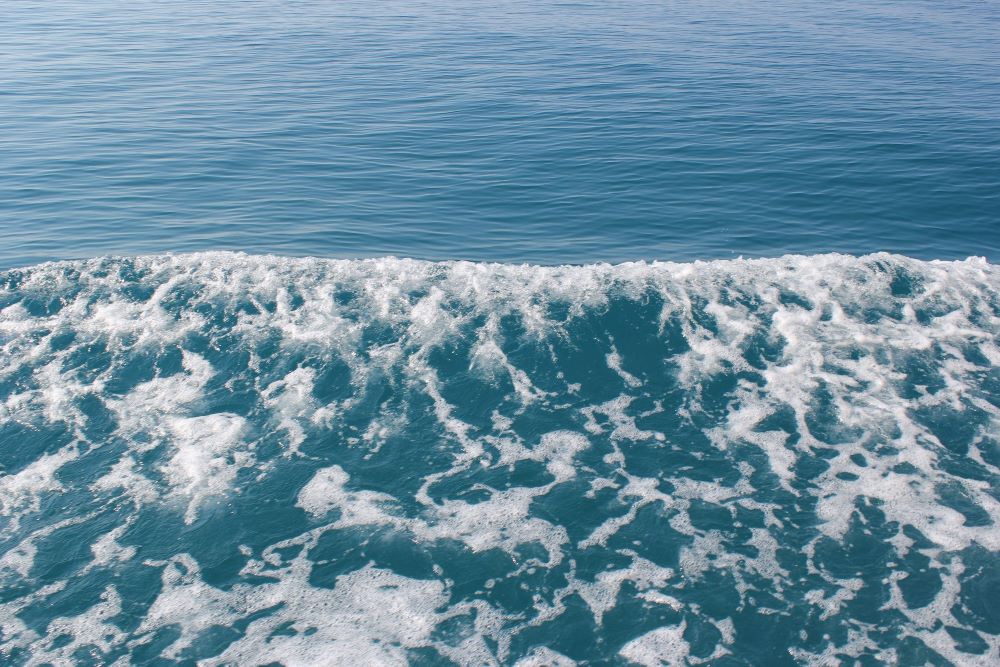Discover the wonders of our oceans - on Earth and beyond. From interactive games like Ocean Explorer to free courses and thought-provoking articles (including oceans in space!), this collection brings together a wealth of learning to inspire curiosity and care for our marine world.
-
The oceans
Learn more to access more details of The oceansThe oceans cover more than 70 per cent of our planet. In this free course, The oceans, you will learn about the depths of the oceans and the properties of the water that fills them, what drives the ocean circulation and how the oceans influence our climate.

-
Ocean explorer
Take part now to access more details of Ocean explorerTake a journey into the Earth's oceans and discover whether you've got what it takes to become an oceanographer. Explore ocean depths, currents, temperatures and find out more about the future of our oceans.

-
Plastics in our ocean
Take part now to access more details of Plastics in our oceanTest your knowledge about plastics in our oceans, and learn about how they impact the environment by clicking on the image below...

-
The ocean of Jupiter’s moon Europa
Read now to access more details of The ocean of Jupiter’s moon EuropaAt over 3100 kilometres across, Europa is the fourth largest moon of Jupiter and the sixth largest moon in our Solar System, rivalling the size of Earth’s moon. Of interest to many scientists, space enthusiasts and science fiction authors is the potential for a vast, global ocean to exist below Europa’s outer icy shell; but why do we think there...

-
Europa: Jupiter’s ocean world
Read now to access more details of Europa: Jupiter’s ocean worldIn the coming years, Jupiter’s moon Europa will be a focus for planetary exploration because of the tantalising possibility that it might harbour life. This article introduces you to this enigmatic moon and why space scientists and astrobiologists are excited about exploring it further.

-
Is your wash day polluting the oceans?
Read now to access more details of Is your wash day polluting the oceans?Every time you wash your clothes, microfibres escape into the environment. And that, explains Dr Natalie Welden, is a huge threat to our oceans.

-
Environment: understanding atmospheric and ocean flows
Learn more to access more details of Environment: understanding atmospheric and ocean flowsWhat affects the atmospheric and ocean flows? This free course, Environment: understanding atmospheric and ocean flows, explores the mechanisms that are important; the most rapid carrier is the wind. The basic principle of global atmospheric circulation is simple: warm air rises and cold air sinks. How does this principle affect the ...

-
Can eating seaweed and algae keep the world fed?
Read now to access more details of Can eating seaweed and algae keep the world fed?As the planet has ever-more mouths to feed, could increasing the consumption of seaweed and algae be the answer?

-
When did the largest ocean current on Earth start?
Read now to access more details of When did the largest ocean current on Earth start?How can fossil fish teeth allow us to understand past deep ocean circulation? PhD student, Sophie Alexander, explains...

-
The ice-covered ocean worlds of the outer Solar System
Read now to access more details of The ice-covered ocean worlds of the outer Solar SystemWhat do we know about Jupiter's and Saturn's icy moons? Could there be life on them? This article explores what previous missions can tell us and what future missions hope to find out.

-
Deep oceans can help us understand our climate
Read now to access more details of Deep oceans can help us understand our climateCarbon isotopes found in deep water fossils offer an insight into deep ocean circulation says PhD student, Andrew McIntyre.

-
The search for water on Mars
Learn more to access more details of The search for water on MarsThe possibility of water on Mars has captured human imagination for over a century. In this free course, The Search for Water on Mars, find out more about how scientists have found evidence for water in the red planet’s past and present, and what this might mean for the possibility of life beyond Earth.


Rate and Review
Rate this article
Review this article
Log into OpenLearn to leave reviews and join in the conversation.
Article reviews